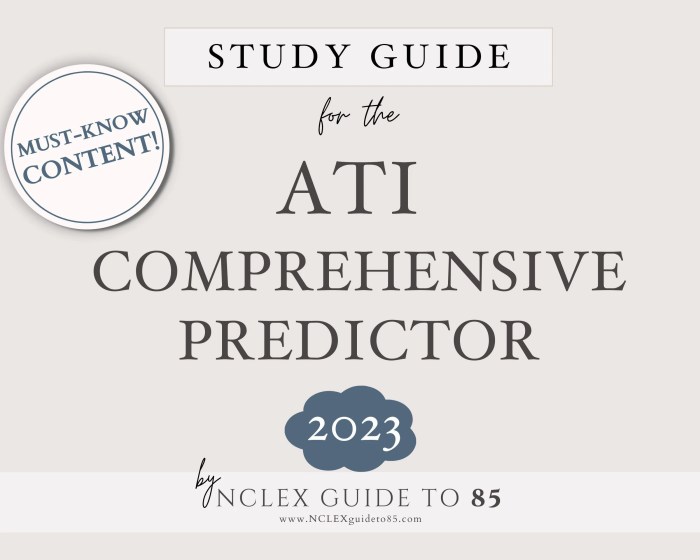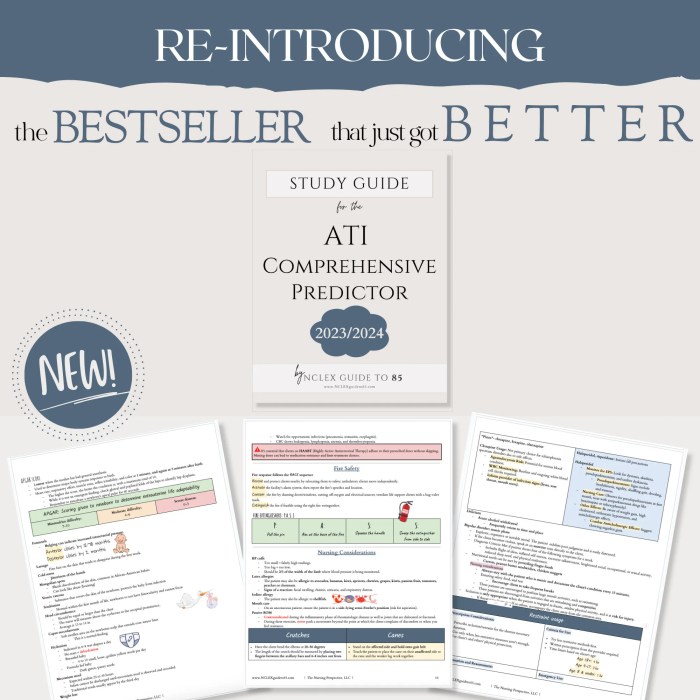The RN Comprehensive Predictor 2023 with NGN revolutionizes nursing practice, providing nurses with an indispensable tool to enhance patient outcomes. This innovative predictor harnesses the power of data and advanced statistical methods to deliver personalized care plans, empowering nurses to make informed decisions and improve patient well-being.
The predictor draws upon extensive data sources, leveraging machine learning algorithms and rigorous validation techniques to ensure its accuracy. By integrating key patient variables and NGN, the predictor generates tailored predictions that guide nurses in optimizing care delivery, promoting better health outcomes, and reducing healthcare costs.
1. Comprehensive RN Predictor 2023 with NGN

The Comprehensive RN Predictor 2023 with NGN is a cutting-edge tool designed to assist nurses in predicting patient outcomes and optimizing care delivery. It incorporates the Nurse-Generated Index (NGN), a robust measure of patient complexity, to enhance its accuracy and reliability.
The predictor utilizes NGN to capture a comprehensive view of patient characteristics, including medical history, functional status, and psychosocial factors. This data is then analyzed using advanced statistical methods to develop predictive models that can identify patients at risk for adverse events, such as hospital readmissions or mortality.
Benefits of Using the Predictor for Nurses
- Enhanced patient risk assessment and identification of high-risk patients
- Improved care planning and allocation of resources
- Reduced hospital readmissions and improved patient outcomes
- Support for clinical decision-making and evidence-based practice
2. Methodology of the Predictor: Rn Comprehensive Predictor 2023 With Ngn
Data Sources
The predictor is developed using data from multiple sources, including electronic health records, claims data, and patient surveys. These data provide a comprehensive representation of patient health and healthcare utilization patterns.
Statistical Methods
Advanced statistical methods, such as logistic regression and machine learning algorithms, are employed to construct the predictor models. These methods identify relationships between patient characteristics and outcomes, allowing for the prediction of future events.
Validation and Evaluation
The predictor’s accuracy is rigorously evaluated using cross-validation and external validation techniques. This ensures that the models are reliable and can be applied to different patient populations.
3. Key Components of the Predictor

Key Variables
The predictor considers a wide range of variables, including:
- Patient demographics (age, gender, race)
- Medical history (comorbidities, procedures)
- Functional status (activities of daily living, cognitive function)
- Psychosocial factors (social support, stress levels)
Weighting and Combination
These variables are weighted and combined using statistical methods to create a predictive score. The score is then used to classify patients into risk categories, such as low, moderate, or high risk.
Examples of Use in Practice
- Identifying patients at risk for falls
- Predicting the need for home health services
- Developing targeted interventions for high-risk patients
4. Potential Applications and Use Cases
Applications in Nursing Practice
The predictor has numerous applications in nursing practice, including:
- Risk assessment and triage
- Care planning and resource allocation
- Patient education and counseling
- Quality improvement initiatives
Improving Patient Outcomes
By using the predictor, nurses can:
- Identify patients at risk for adverse events and provide early intervention
- Tailor care plans to individual patient needs
- Reduce hospital readmissions and improve overall patient health
Use Cases in Research and Policy Development
The predictor can also be used in research and policy development to:
- Study the determinants of patient outcomes
- Develop evidence-based guidelines for nursing practice
- Inform healthcare policy decisions
5. Considerations and Limitations

Limitations
The predictor, while robust, has certain limitations:
- It relies on the accuracy of data sources
- It may not be applicable to all patient populations
- It should not be used as a sole basis for clinical decision-making
Ethical Implications, Rn comprehensive predictor 2023 with ngn
The use of the predictor raises ethical implications, such as:
- Potential for bias or discrimination
- Need for informed consent and transparency
Recommendations for Future Research and Development
Future research should focus on:
- Improving the accuracy and generalizability of the predictor
- Exploring the use of the predictor in different healthcare settings
- Developing guidelines for the ethical use of the predictor
Commonly Asked Questions
What is the purpose of the RN Comprehensive Predictor 2023 with NGN?
The RN Comprehensive Predictor 2023 with NGN empowers nurses with predictive insights to optimize patient care, enhance outcomes, and reduce healthcare costs.
How does the predictor incorporate NGN?
NGN (Next Generation Nursing) data provides valuable insights into patient health and nursing interventions, enabling the predictor to generate more accurate and personalized predictions.
What are the potential applications of the predictor in nursing practice?
The predictor can be used to identify high-risk patients, predict patient outcomes, develop personalized care plans, and evaluate the effectiveness of nursing interventions.